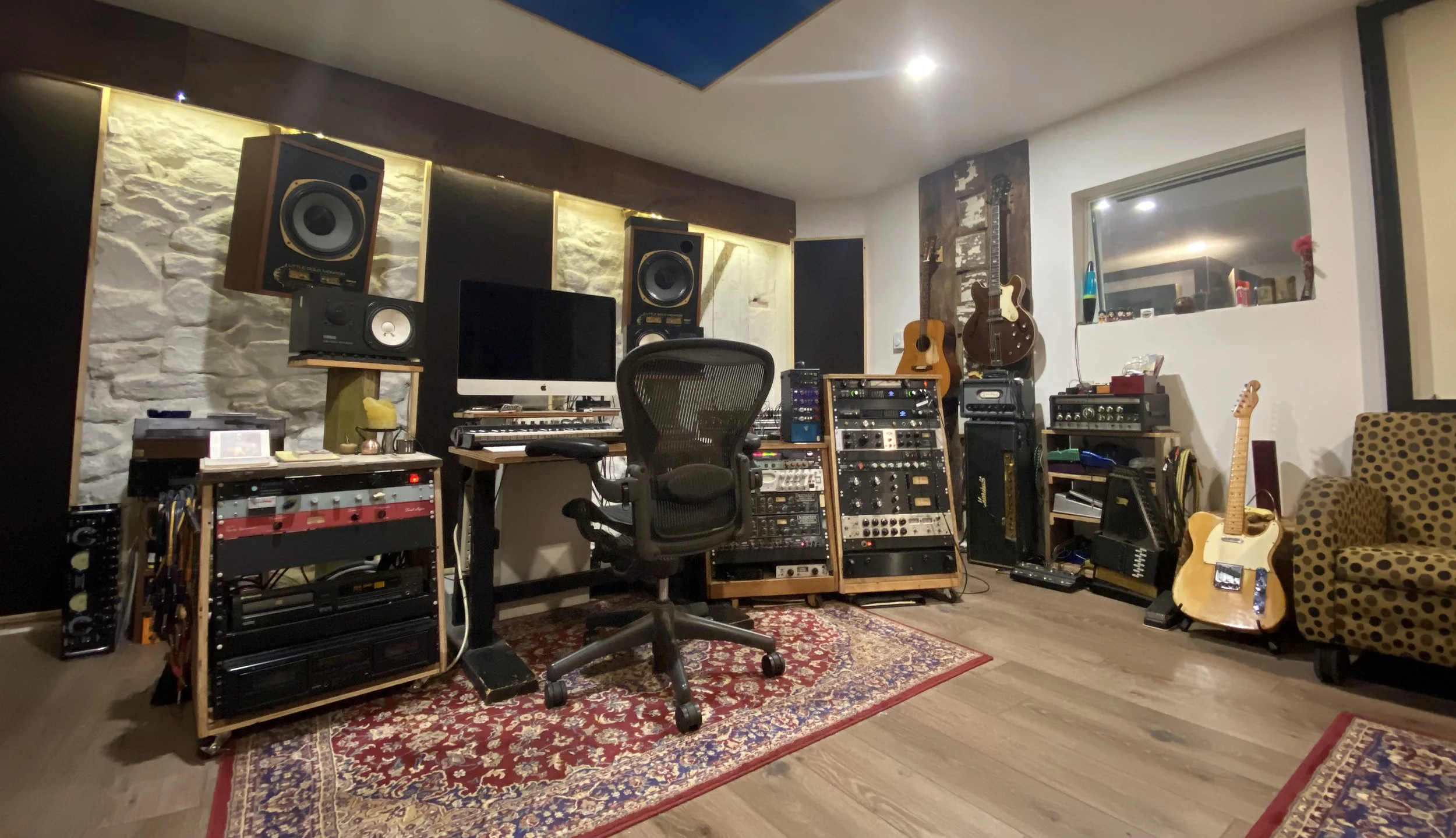A recording & production studio
built for creativity.
Producer Derek Chafin turned an 1800's stone barn in Chester County into a world-class studio. BarnSound is a state-of-the-art production and multi-track recording, mixing, and mastering studio for music and voice-over.
It’s the center of a supportive community of bands, songwriters, and other creative clients who tap into Derek Chafin’s production experience to find new insights into their work.
Located on four acres in Chester Springs, PA, it’s a naturally beautiful place to create.
"Until we worked with a producer, our songs just felt unfinished. Derek helped us shape our music and find our true sound."
– Geremiah Giampa, Brother Starling-
We’re here for you. From singles and EPs to fully-produced albums, we treat you and your music with care and respect.
-
Bring your ideas and let’s create! Producer Derek Chafin can help with everything from song structure to arrangements.
-
Quick, live tracking is our specialty. We’ll have the studio set up for your session and produce a great-sounding demo you can use for gigs and promo.
-
We’ve got it all: perfect acoustics; plenty of room to breathe; a gorgeous location in Chester County. Best of all, we offer great hourly and block rates!





